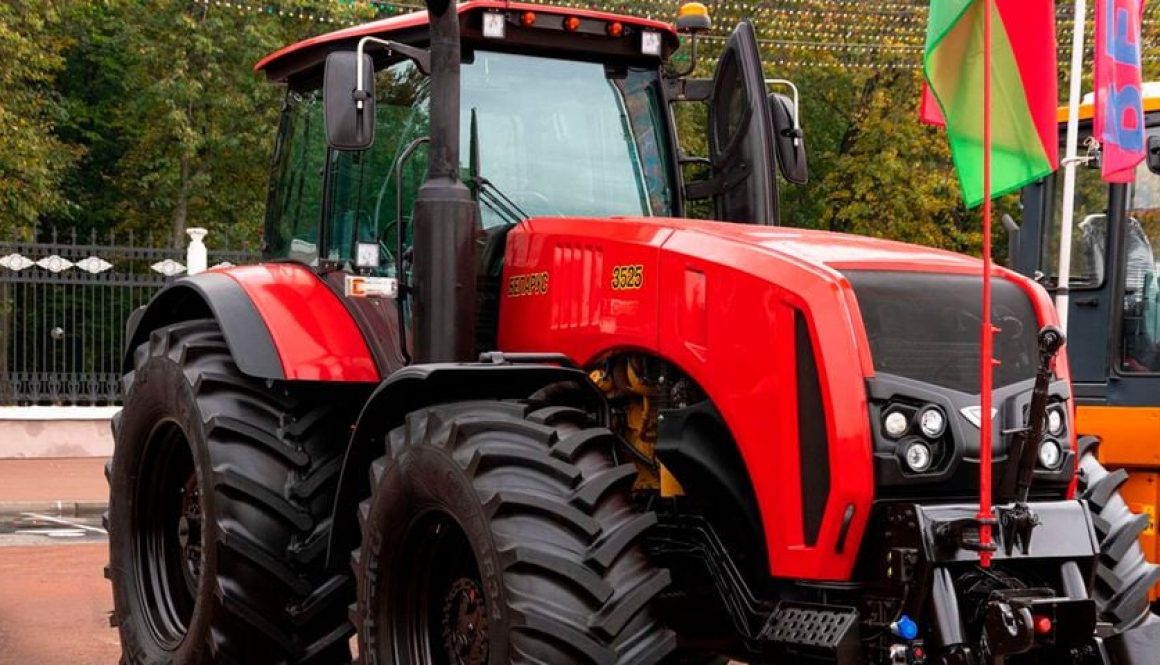Questions over Sh31bn mystery tractor imports deal with Belarus
If the deal goes through, it will be the single largest import of tractors and agricultural equipment in Kenya in recent years. The transaction – which is envisaged to be implemented in 18 months by the hitherto moribund and financially-troubled state-owned credit body Agricultural Finance Corporation (AFC) – is shrouded in mystery in several respects.
First, the imports are to come from Belarus – an eastern European country and ally of Russia in the Ukrainian war. Belarus is under United States, United Kingdom and European Union sanctions.
Since the Ukraine war started, Belarus has been struggling to circumvent Western sanctions against exports of its agricultural equipment industry and has been fighting to limit exposure of its companies and subsidiaries to the penalties.
Just how high the diplomatic stakes are was aptly demonstrated recently by a strong statement by United States Secretary of State, Antony Blinken, on the first anniversary of the war.
He said Russia and President Aleksandr Lukashenko’s regime in Belarus will pay a severe economic price for the aggression against Ukraine and warned of sweeping sanctions to target export controls, visa restrictions to cut off Russia’s and Belarus’ access to vital technological inputs, and measures to atrophy industrial bases of the two countries.
President William Ruto’s administration is taking a risky diplomatic gamble in seeking to transact with a country under sanctions from powerful Western nations.
As one follows the key documents in the transaction, including a Cabinet memo, a memorandum of understanding between AFC and a Dubai-based entity known as Aftrade DMCC, one ends up with a narrative that sheds more mystery than light.
Where is the money to buy billions-worth of machinery from Belarus to come from?
In a February 27 letter to the Office of the Attorney-General, the chief executive of AFC, George Kubai, requested the help in drafting a government-to-government agreement between Kenya and Belarus, implying that the multibillion-shilling project will be funded by a concessional facility by Belarus.
The second mention of source of funding is to be found in a Cabinet paper headlined “The National Agricultural Mechanisation Programme to be implemented by the AFC”.
“The programme will be funded through a line of credit from Trade Development Bank (TDB) for a seven-year period with interest anticipated at a maximum of two and three per cent,” it says.
It is important to note that TDB is specifically mentioned as the source of the project funding.
According to a briefing document prepared by AFC, the “National Treasury will negotiate for programme funding on the back of AFC’s balance sheet and augment the funding by budgetary allocations to AFC to at least Sh1 billion”.
Once again, TDB is specifically mentioned in the document that adds: “All the government will provide is a letter of comfort to TDB to compliment the programme”.
Another section of a report prepared by AFC headlined “An executive report on the mechanisation of select government agencies in the agricultural sector” says the project is to be funded from a line of credit to be arranged between Kenya and Belarus on a “G-to-G” basis.
TDB’s name comes up again in yet another section of the briefing document: “The financing to be arranged will be from the Trade and Development Bank of Comesa, where the government of Belarus is a shareholder.”
“The corporation proposes to raise the initial approximately Sh31 billion for machinery through a loan to be arranged by the government of Kenya through the TDB”.
It adds: “This will be secured on the back of the programme cash flows and the corporation’s balance sheet. The corporation proposes to raise the balance of Sh4.1 billion through equity contributions and government injections.”
Read more in The Nation.Africa


